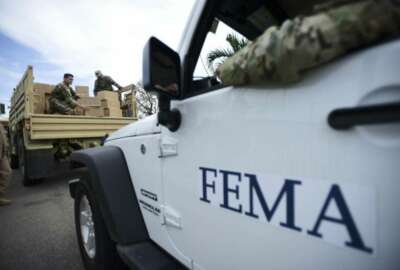FEMA, union agree to new policies to fix overtime discrepancies under $16.5M settlement
The new policy is aimed at ensuring FEMA employees are properly categorized under the Fair Labor Standards Act.
The Federal Emergency Management Agency and the American Federation of Government Employees agreed to new policies aimed at ensuring FEMA employees are properly categorized to earn overtime after a major legal settlement, according to the union and its attorney.
Steven Reaves, president of AFGE Local 4060, says the new policy was agreed to as part of a $16.5 million settlement FEMA agreed to pay over unpaid overtime claims. AFGE lodged the Fair Labor Standards Act overtime grievance in 2018.
At the time, Reaves said he was getting numerous complaints from bargaining unit members about unpaid overtime.
“Once we looked at it as a whole, we noticed that it was a systematic problem, that there was an agency-wide problem, the application of overtime and how much overtime that we perceived that people were missing out on,” Reaves said in an interview.
Certain FEMA employees had been misclassified as FLSA exempt, making them ineligible to earn overtime, according to Eric Pines of Pines Federal, AFGE Local 4060’s counsel.
“These cases build up over years and years of misclassification,” Pines said. “[The Office of Personnel Management] or the agency classify the positions and either the initial classification is wrong or the duties change over the years without a reclassification occurring.”
The new policy will ensure FEMA management has a more thorough process for determining who is eligible for overtime. “As a result of the settlement, this is being corrected and, going forward, FEMA employees now know they will be paid appropriately based on an accurate FLSA designation,” Pines said.
In a statement, a FEMA spokesperson said the agency is fixing its policies to ensure employees are no longer misclassified.
“FEMA examined its personnel records and found we had underpaid some of our employees for the overtime they were entitled (this was especially true during our recent historic disaster seasons like 2017),” the spokesperson wrote. “We worked diligently and collaboratively with the union to pay our valued employees what they were entitled. We completed a comprehensive review to fix errors in their personnel records that were the root cause of the problem and we are clarifying our policies to ensure this error never happens again.”
But both Pines and Reaves credited the agency for being cooperative in working out an agreement over the unpaid overtime claims.
“The agency was more than forthcoming, saying, ‘Hey, let’s fix this together,’” Reaves said. “So we had a great partner in them to resolve this issue and then part of that was the monetary settlement.”
FEMA settlement payout details
The $16.5 million settlement covers AFGE bargaining unit employees who worked for FEMA from March 2015 through August 2021, according to Reaves. It includes both current and former employees. The bargaining unit includes approximately 3,800 members.
The union and its attorneys are now working with the Class Action Implementation Group (CAIG) to determine who is eligible to receive payments and distribute the money.
AFGE is directing current and former employees who think they may be entitled to a settlement payment to register at the CAIG web portal for more information, according to a post on Pines’ website.
“Thousands of FEMA employees are covered by the settlement,” Pines said. “Determining eligibility and entitlement is a monumental task being worked on by the union, its attorneys and implementation company. Collectively, we need to ensure the settlement funds are distributed in a fair and equitable manner and that those so entitled are located and paid.”
Turnover and burnout at FEMA
FEMA’s workforce has faced numerous challenges in recent years, with high rates of turnover and burnout stemming from an increase rate of natural disasters, according to the Government Accountability Office.
The agency has played a critical role in the federal COVID-19 response, deploying to testing and vaccination sites around the country. It has also been called into help with the surge of migrant children at the southern border.
When Reaves began fielding complaints about unpaid overtime in 2018, the agency was recovering from a record breaking 2017 disaster season while preparing for what would eventually become another eventful year for hurricanes and other natural disasters.
Reaves said FEMA is the latter stages of planning for the upcoming hurricane season, while also continuing with its COVID-19 and border duties.
“We usually go from one disaster to the next, and this led to a higher turnover and burnout on our on our end,” Reaves said. “So this recoupment of overtime that a lot of our bargaining unit members lost, maybe it’ll take a little of the sting out of the insanely increased workload that we’ve been suffering the last couple of years.”
Copyright © 2024 Federal News Network. All rights reserved. This website is not intended for users located within the European Economic Area.
Follow @jdoubledayWFED





